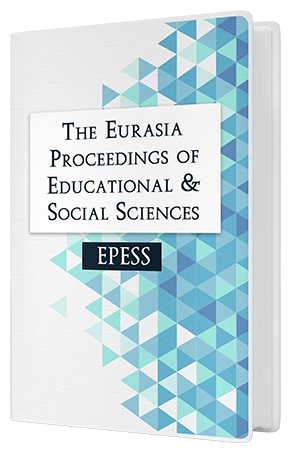EFFECT OF STEM-5E LEARNING CYCLE (AM-STEM KIDS MODULE) IN FOSTERING NOBLE VALUES AMONG ELEMENTARY SCHOOL CHILDREN
Keywords:
Noble values, STEM, 5E learning cycle, inquiry based learningAbstract
The purpose of this study is to investigate the effect of STEM-5E learning cycle intervention (AM-STEM Kids module) in fostering noble values among elementary school children. The element of noble values consists of: (i) being thankful to God, (ii) being cooperative, (iii) thinking rationally, (iv) appreciating the contribution of science and technology, and (v) being fair and just. This study employed a quasi-experiment with non-equivalent pretest and posttest control group design. A total of 116 fifth-grade children from two schools were selected as respondents and each of the school was treated as treatment and control group. The treatment group using AM-STEM Kids module while the control group experienced conventional inquiry teaching approach. Questionnaires were used to examine the perception of noble values by the children before and after the designed learning activities. MANOVA repeated measure and paired sample t-test were used to identify the effect and the existence of significant changes in the children’s noble values between treatment and control group. The finding of the study revealed that there was a significant change in the mean score for treatment and control group in term of appreciating the contribution of science and technology, and being fair and just. Data also shows the effect size of the treatment group is higher as compared to the control group. The result of this study concludes that, AM-STEM Kids module is effective in fostering children’s noble values and hence could be used as teaching resources in fostering noble values in the science classroom.Downloads
Published
Issue
Section
License
Copyright (c) 2017 The Eurasia Proceedings of Educational and Social Sciences

This work is licensed under a Creative Commons Attribution-NonCommercial-ShareAlike 4.0 International License.
The articles may be used for research, teaching, and private study purposes. Any substantial or systematic reproduction, redistribution, reselling, loan, sub-licensing, systematic supply, or distribution in any form to anyone is expressly forbidden. Authors alone are responsible for the contents of their articles. The journal owns the copyright of the articles. The publisher shall not be liable for any loss, actions, claims, proceedings, demand, or costs or damages whatsoever or howsoever caused arising directly or indirectly in connection with or arising out of the use of the research material. All authors are requested to disclose any actual or potential conflict of interest including any financial, personal or other relationships with other people or organizations regarding the submitted work.




